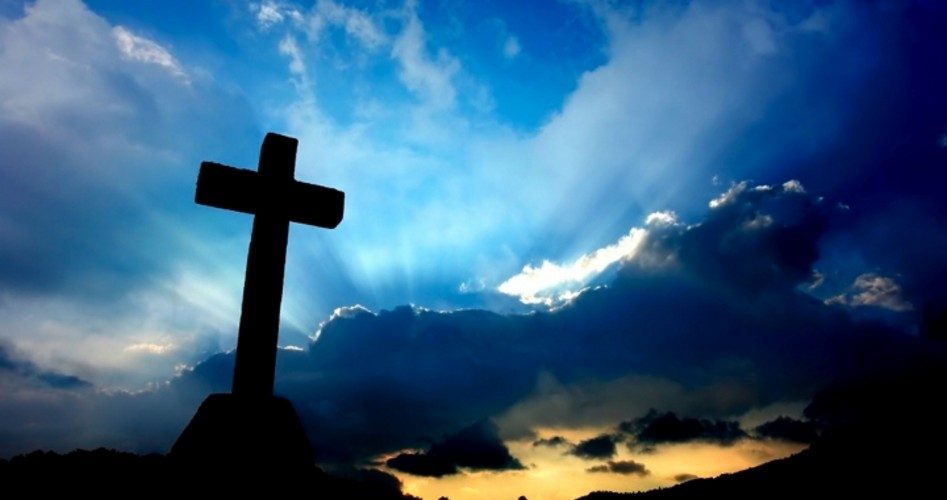
Speaking at a meeting discussing religious persecution held by the Open Doors organization in Brussels on December 2, European Parliament President Martin Schulz said that “Christians are not safe” on the European continent.
During his talk, Schulz said that the persecution of Christians is “undervalued” and does not receive enough attention and, consequentially, it “hasn’t been properly addressed.”
Schulz continued, “It should shake us up that on our continent, Christians are not safe.”
Speakers at the event praised the work of Open Doors. The Netherlands-based organization is a non-denominational mission supporting persecuted Christians in over 60 countries where Christianity is socially or legally discouraged or oppressed. The organization’s stated aims are to raise awareness of global persecution, mobilizing prayer, support, and action among Christians from around the world.
An Open Doors 2015 report noted: “Islamic extremism is by far the most significant persecution engine” of Christians, with “40 of the 50 countries on the World Watch List affected by this kind of persecution.”
European Parliament Vice President Antonio Tajani delivered essentially the same message as Schulz, warning that Europe sometimes “falls into the temptation of thinking we can ignore this task,” referring to the responsibility to assist Christians throughout the world who suffer persecution. Tajani continued,
Each month 200 churches and places of worship in the world are attacked and destroyed. Every day and in every region of the world, there are new cases of persecution against Christians. No religious community is as subject to hatred, violence and systematic aggression as the Christians.
In the name of religion, we have an obligation to condemn all those who show contempt for life and kill in the name of God. Whoever shoots in the name of God, shoots against God.
Another speaker at the event, Jean Kockerols, auxiliary bishop of the Roman Catholic Archdiocese of Mechelen-Brussels, Belgium, said that the idea that Christians are intruders in countries that are now dominated by Muslims must be debunked, since the Christian presence in the Middle East and the Indian sub-continent “dates back to centuries before the spread of the Koran.”
Schulz also expressed support for helping Christians during a meeting held last January under Article 17 of the EU Treaty on inter-religious dialogue, during which he said, “I can assure you that Parliament will make its contribution wherever it can to protect Christians.”
That meeting, which was organized by Tajani, focused on the persecution of Christians around the world and discussed specific proposals for ending that persecution.
Schulz said at the January event:
Persecution is happening outside the EU but we can’t afford to ignore it…. All of us, particularly in the EP, are aware that dialogue and mutual respect are needed…. Fundamental rights are under great threat today and persecution of a religion [is] a breach of fundamental rights.
Though the Brussels conference did not address the plight of Christians who may be among the tens of thousands of refugees fleeing the civil war in Syria and other conflicts in the Middle East, that is also a concern for many. At an emergency EU summit held in Brussels on September 22, heads of government from the European Union approved a plan to distribute 120,000 migrants fleeing turmoil in the Middle East across Europe. Since Syria and other nations in the region are overwhelmingly Muslim, so are most of the refugees. The plight of Christian refugees fleeing places such as Syria and Iraq is often overlooked, however.
A December 3 article in the Christian Post questioned whether Christian refugees are worse off than Muslim refugees. The article cited a statement from a priest in Jordan, Father Khalil Jaar of the Messengers of Peace Association, who said that Christian refugees from Iraq and Syria are facing persecution from two sources. They are being discriminated against by Western governments who are only taking in refugees from the main designated refugee camps — and are also being “eliminated” in their homelands by ISIS.
The problem, notes Khalil, is that many Christians, fearing attacks from Muslim extremists in the camps, refuse to enter them. This leaves them out of the network established to offer help.
The priest asked why the West is “not doing more for Christians and other minorities.”
“If the Christians stay in Syria and Iraq, they risk being eliminated by Islamic extremists and if they seek sanctuary abroad in the main refugee camps, they suffer abuse from those already there,” the priest continued.
The Post also quoted Reverend Kevin Jessip of the Global Strategic Alliance, who said: “It’s inappropriate for the United States of America to discriminate against [members of] a minority religion [Christianity] who [are] in dire need of asylum. These are proven cases at the UNHCR [United Nations High Commissioner for Refugees] that we’ve seen of people who have been denied, and are in jeopardy of losing their lives.”
Related articles:
Hungary’s Orban Says Europeans Must Defend Their Borders
The Real Refugee Problem – and How to Solve It
French President: Refugees Still Welcome, Despite Paris Attack
Refugee Crisis Prompts Sweden to Introduce Border Controls
In Response to Massive Influx of Refugees, Europeans Seek More Guns
Hungarian Bishop Disagrees With Pope’s Views on Refugee Crisis
EU Leaders Will Spread 120,000 Refugees Across Europe
Germany Changes Policy and Halts Massive Influx of Middle Eastern Refugees
Flood of Refugees From Syrian Civil War Challenges Europe
European Commission President Asks EU to Accept 160,000 Migrants


